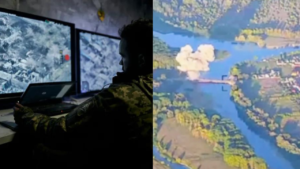Allow Salvage Crews
In a significant development concerning maritime safety and environmental protection, Yemen’s Houthis have agreed to permit salvage crews to access the damaged oil tanker, Sounion, currently ablaze in the Red Sea. This decision marks a crucial turning point in managing what could potentially become one of the largest oil spills in recorded history. This blog post delves into the context of the situation, the implications of the Houthis’ decision, and the broader impact on environmental and geopolitical landscapes.
Background of the Crisis
Yemen’s Houthis Attack on Allow Salvage Crews Access to Oil Tanker
The Oil Tanker Incident
The Sounion, a Greek-flagged crude oil tanker, has been at the center of a maritime crisis since it was struck by multiple projectiles off Yemen’s port city of Hodeidah last week. The vessel is carrying approximately 150,000 tonnes (1 million barrels) of crude oil, making it a significant environmental hazard. The potential for an oil spill from this tanker is immense, with the risk of it becoming one of the largest such incidents in history.
Houthi Attacks and Geopolitical Context
The Houthis, an Iran-aligned militant group, have claimed responsibility for the attack on the Sounion. This action is part of their broader strategy of using drone and missile strikes in the Red Sea, a campaign that began in November. The Houthis have stated that their attacks are in solidarity with Palestinians amid the ongoing conflict between Israel and Hamas in Gaza. Their recent assaults have included sinking vessels, seizing ships, and causing casualties among seafarers.

The Houthis’ Decision to Allow Salvage Crews
Initial Restrictions and International Appeal
Prior to this decision, access to the Sounion was heavily restricted, complicating efforts to manage the situation. The international community, including several countries and organizations, reached out to the Houthis, urging them to allow the entry of tugboats and rescue ships. The appeal was driven by mounting concerns over the environmental risks and the urgency of the situation.
Humanitarian and Environmental Considerations
In response to these appeals, Yemen’s Houthis have agreed to permit salvage operations in the area. According to Iran’s mission to the United Nations, this decision was influenced by humanitarian and environmental concerns. The Houthis’ spokesperson, Mohammed Abdulsalam, clarified that while there is no formal truce, the group consented to the entry of salvage crews after substantial international pressure.
Salvage Operations: Current Status and Challenges
Operational Details
With access now granted, salvage crews face the daunting task of mitigating the environmental impact of the blaze. The operation involves deploying tugboats to tow the damaged tanker to a safer location and prevent any potential oil spill. The crews are working under challenging conditions, given the ongoing risks associated with the tanker and the volatile regional environment.
Risks and Safety Concerns
Despite the permission granted, the salvage operation is fraught with risks. The volatile nature of the fire and the potential for further attacks complicate efforts. There have been reports of the Houthis threatening to attack any third-party vessels attempting to assist, adding a layer of danger for the rescue teams.
Broader Implications
Environmental Impact
The potential environmental impact of the Sounion fire is severe. An oil spill of this magnitude could devastate marine life and ecosystems in the Red Sea, a vital area for global biodiversity. The salvage operation’s success in preventing a spill will be crucial in mitigating long-term environmental damage.
Geopolitical Ramifications
The Houthis’ decision to allow salvage crews also has broader geopolitical implications. It highlights the complex interplay of regional conflicts and international diplomacy. The situation underscores the challenges of managing maritime safety in conflict zones and the importance of coordinated international response efforts.
International Reactions
The international community has expressed both relief and concern regarding the Houthis’ decision. While the permission to access the tanker is seen as a positive step, the ongoing risks and the broader geopolitical context continue to be areas of concern. The United Nations and other organizations are closely monitoring the situation and providing support to ensure the effectiveness of the salvage operation.
Conclusion
Yemen’s Houthis allowing salvage crews access to the oil tanker ablaze in the Red Sea represents a critical development in addressing a potentially catastrophic environmental and geopolitical crisis. The decision, influenced by international pressure and humanitarian concerns, provides a crucial opportunity to manage and mitigate the risks associated with the Sounion incident. As salvage operations proceed, the focus remains on preventing an environmental disaster and navigating the complex geopolitical landscape surrounding this crisis.
This situation serves as a stark reminder of the intricate connections between regional conflicts, maritime safety, and global environmental concerns. The international community’s role in supporting effective responses to such crises is more vital than ever.










